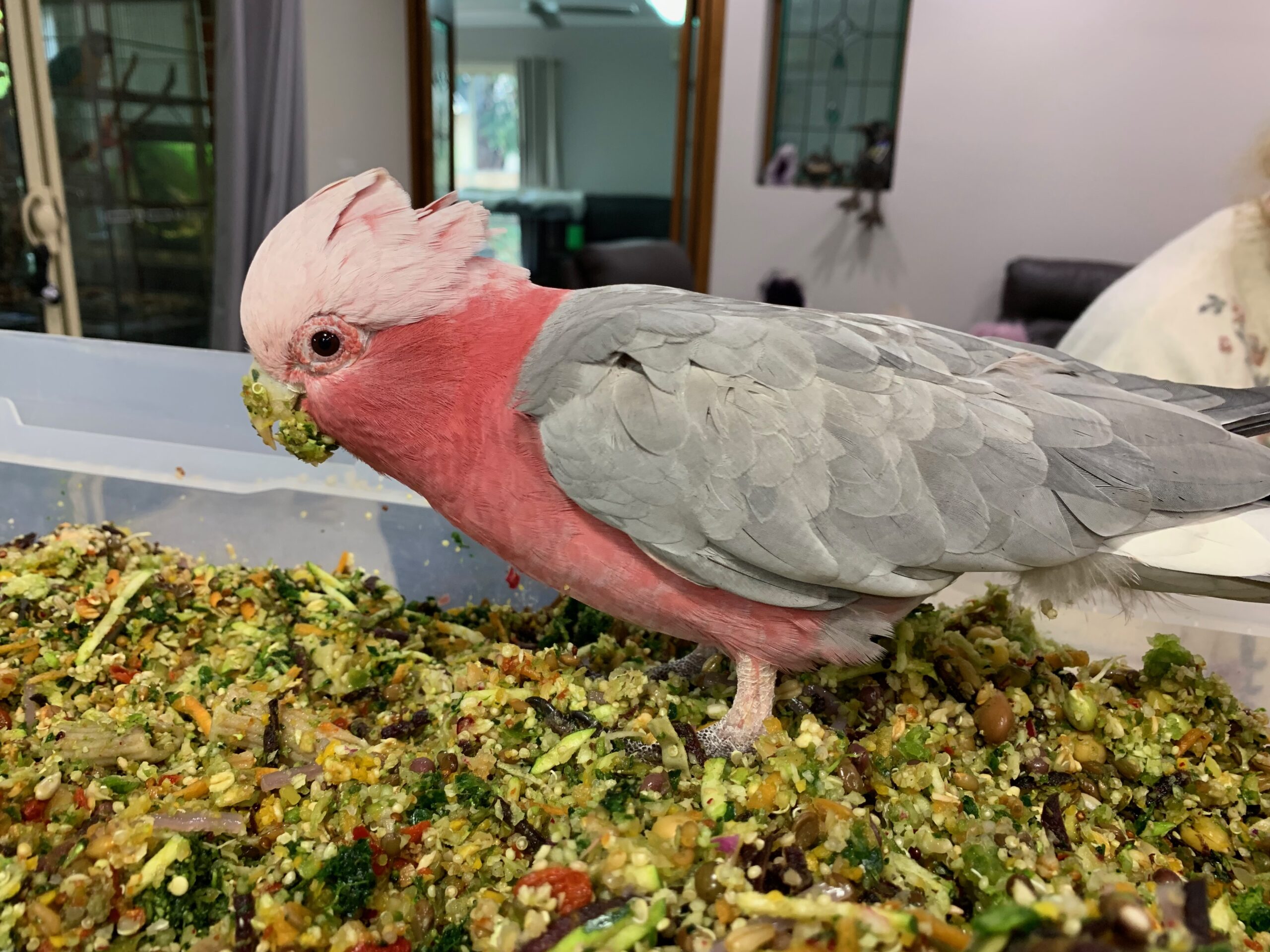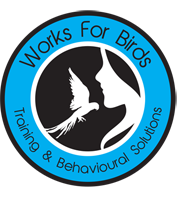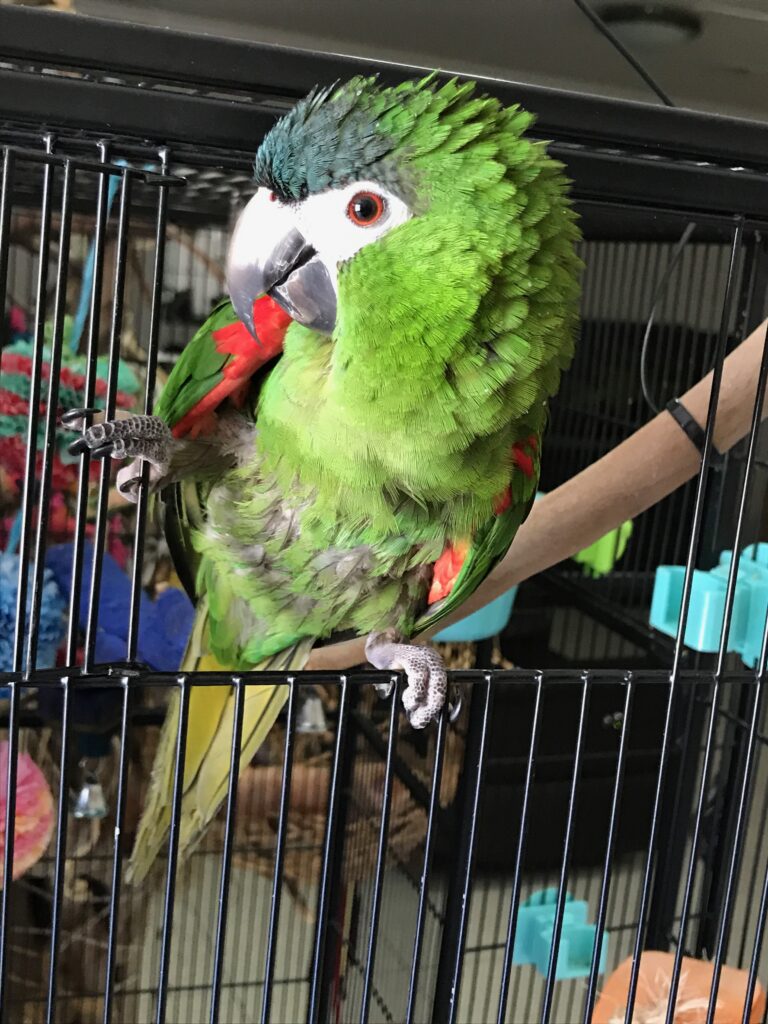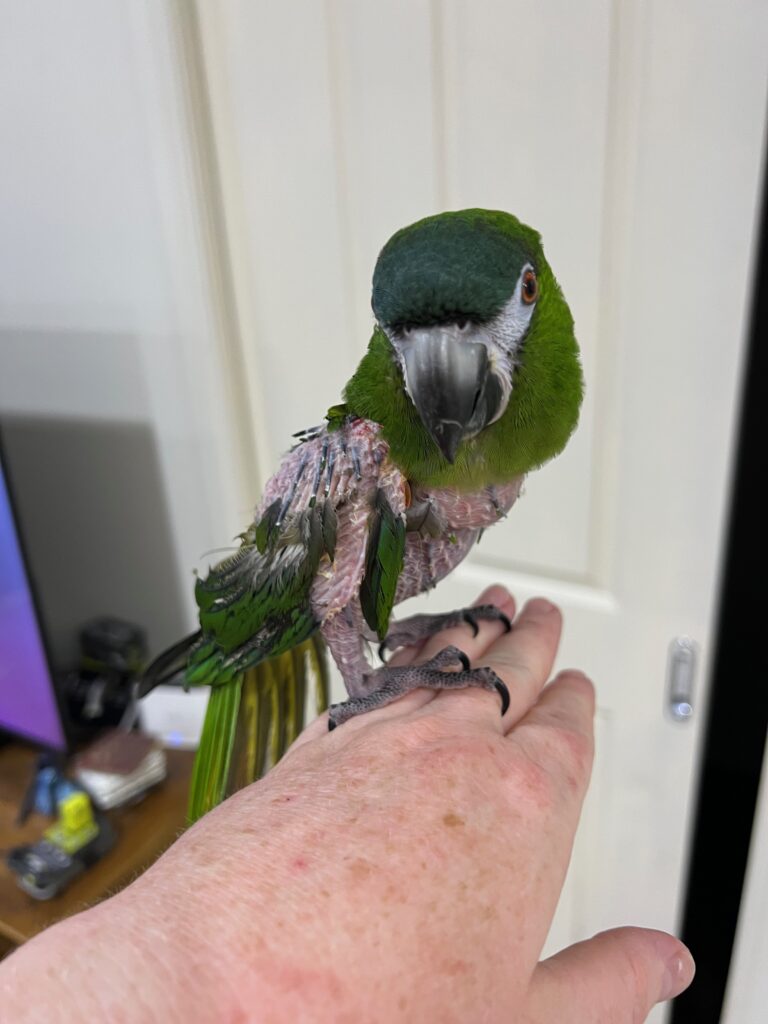Helping a Pet Bird Grieve
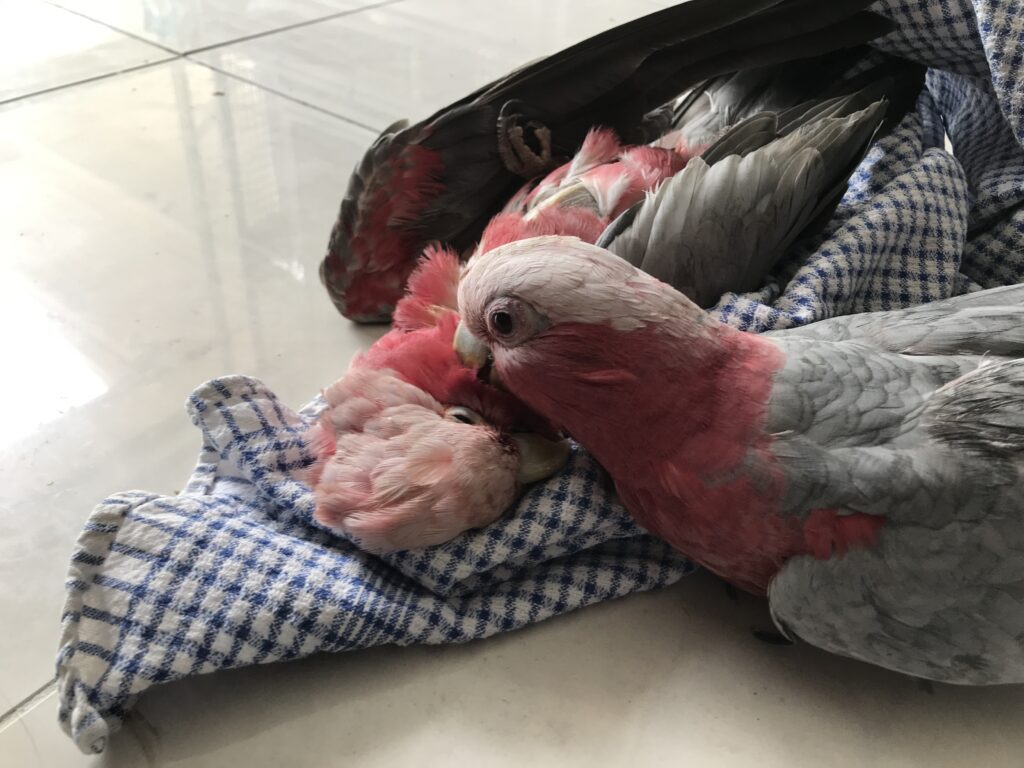
Do pets grieve?
Animals will grieve the loss of a family member (human or animal). Studies show that most animals will show at least one (if not multiple) behavioural changes after the death or loss of a mate, a companion or other family member. It can be extremely difficult to help your pet through that. Birds in particular, are well-known for problem behaviours when grieving. Have you heard people say that birds mate for life and that the mate will fret and die after the death of its partner? This suggests that some sort of life-threatening behavioural change happens often enough for that to become a general belief.
Signs that your pet may be feeling the stress of grief can include:
- exhibiting repetitive behaviours such as pacing
- increased contact calls/screaming
- reduced appetite/stop eating
- feather destructive behaviours (such as plucking or over-preening)
- increased aggression
- defensive body language
- lack of interaction with others or their environment
- appearing to look for or wait for the loved one (e.g. a dog might sit at a door)
- onset of illness
Obviously, some of these signs can quickly become fatal if not addressed. This is particularly concerning, if a bird stops eating or commences self-destructive behaviours. In severe cases, you may need to seek professional help for your bird.
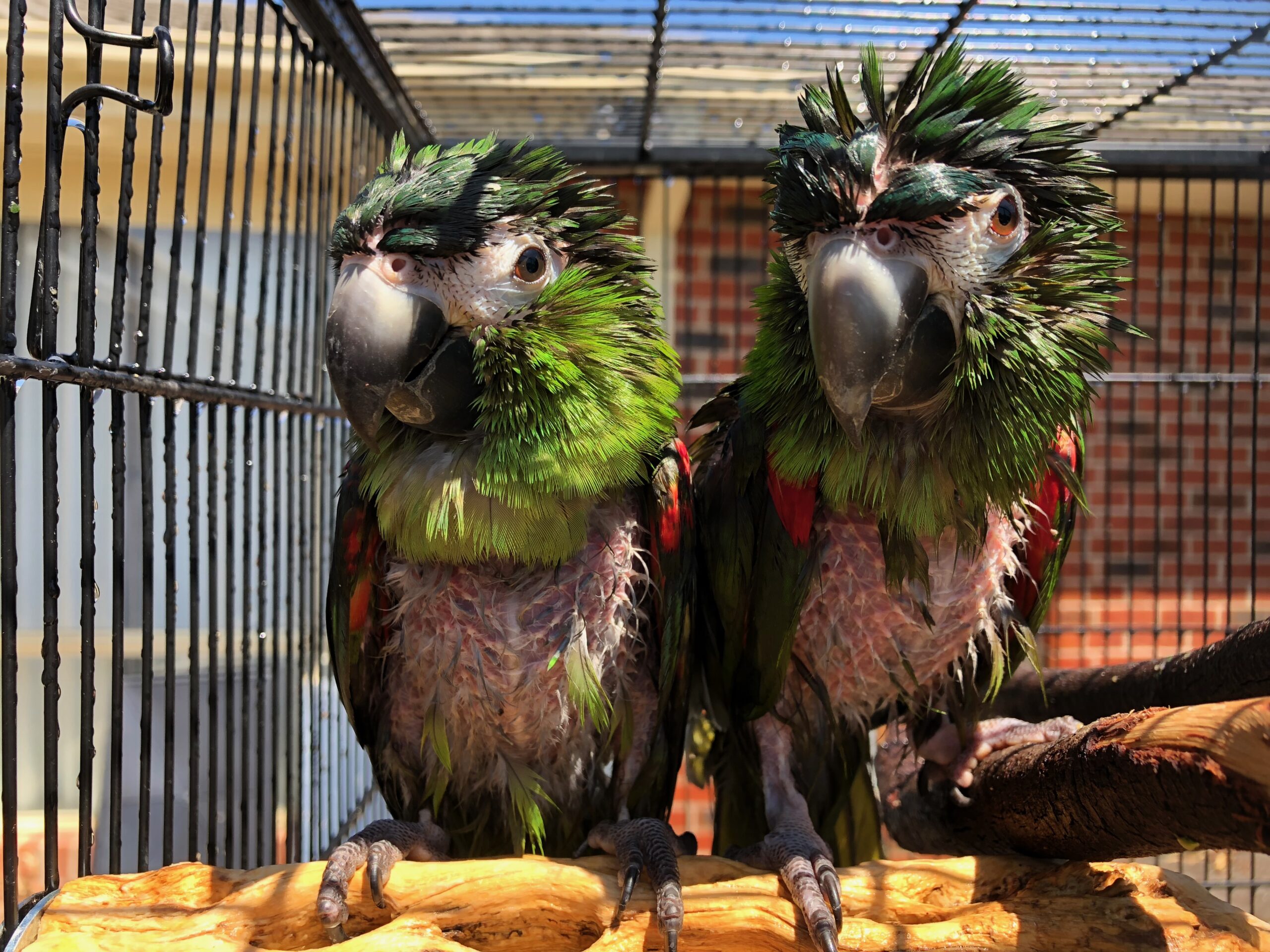
Should you let your other pets see the pet that died after it has died?
The answer to this is going to depend on the individual pets involved. I can think of examples of both good and bad results for both options. My advice would be to make a judgement call based on what you know of your pet. If you feel that your pet is going to be looking for its lost friend, you may feel it needs the closure of knowing its friend is dead by letting them see this for themselves.
A pair of hahns macaws used to board with me very regularly - so regularly that they sort of became extended members of my flock. I was incredibly close to those birds. Both had plucking problems in combination with other health issues. Tuko (the male) became so sick that his owner was forced to euthanise him. The female was not present for Tuko's death, all she knew was that her mate was taken away and didn't come home. The owners were so upset that they couldn't even say Tuko's name. They were incredibly careful about not saying it around Chica (the female) in case it upset her.
Chica meanwhile had a full relapse of feather destructive behaviours. She was ripping into herself so badly that she was bleeding. Her owner rang me, very distressed, so I recommended a change of environment hoping coming to my place to see her other friends might help.
I tried to put Chica into her cage but she broke free and flew off into my bird room. She was going from cage to cage yelling "Hey Tuko!" It was one of the most heartbreaking things I have ever seen as I believe she was looking for her mate. I also believe she knew that she comes to me when she plucks. I couldn't help but wonder if she had planned it in order to search for him. When she had checked all the cages, she let me hold her. I said "No Tuko" and she said "Tuko" in the saddest little voice I have ever heard. But I think she understood he was gone and that I knew he was gone. This was not a bird that normally looked for a cuddle from me, but on this occasion she did. I noticed her friends in my flock were quite anxious to get to her and they certainly seemed to pay more attention to her than normal during her stay. I will add that these days she is fully feathered and is doing really well at home.
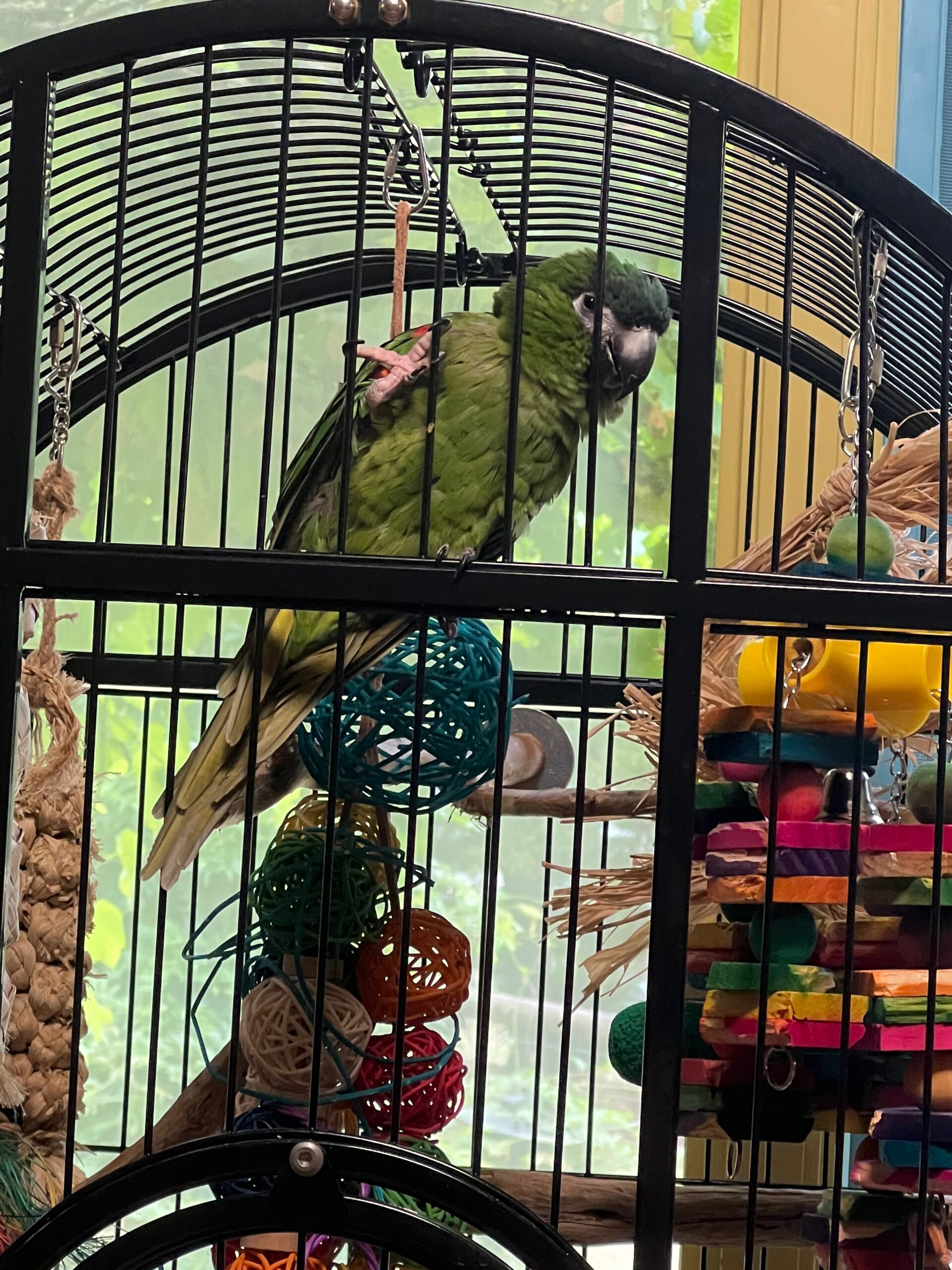
This experience could easily make you think that in this instance Chica may have benefited from seeing her partner dead in order to understand he wasn't coming back. This isn't necessarily true though. It can actually backfire.
My next example were two of my own galahs, Merlin and Nemo. They were a very tightly bonded pair. Nemo developed a particularly aggressive type of cancer and was definitely suffering. I took her to the clinic and she was euthanised. I let Merlin see her so that he would understand what happened. His reaction was one of fear. He was gasping and yawning as though he couldn't breathe. He launched himself at me in a very aggressive attack. We used to be very close. It has been a year. He only started talking to me again last week. I felt like he blamed me.
The good part though? He never looked for her. He slotted back into my group of galahs and apart from occasional flying attacks on me, he seemed to cope very well with her passing. It has taken a year though for him to start looking like he might be making some closer friendships with other birds.
The reality is there's no right or wrong answer to whether you should allow your remaining pet(s) to see their friend dead. It's a judgement call on whether or not you think your bird will benefit from the closure of knowing their friend is dead.
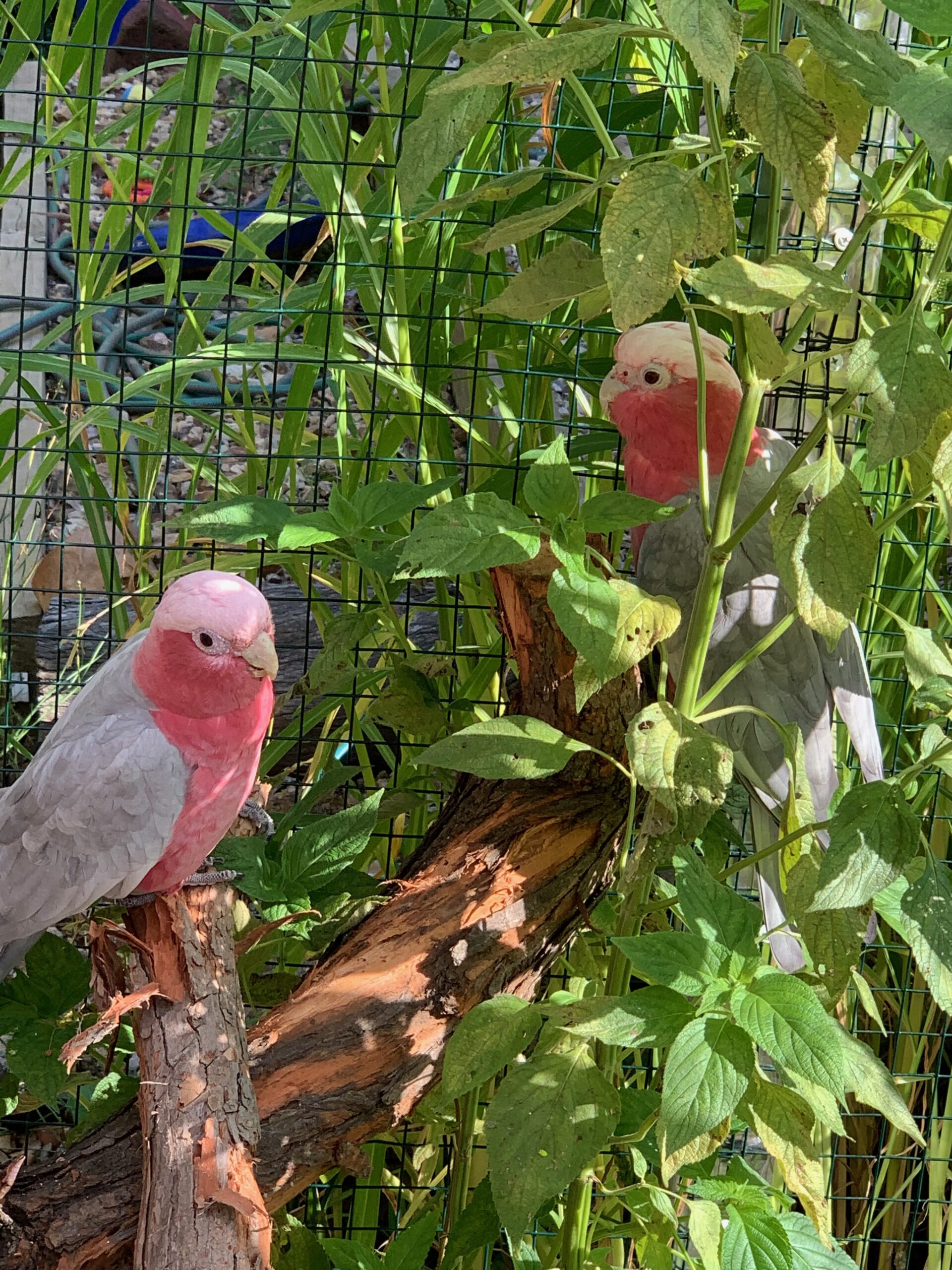
What can you do to help your remaining bird(s) when a member of your flock passes?
The number one tip that I can give you is: Give them something else to think about. The busier you can keep them, the better. Company of other birds or animals can help too.
I had an elderly galah called Charlie in my flock. He was in his 60s, so when I say elderly, I mean it. He was very very closely bonded to another elderly galah called Cocky Boy. Cocky Boy was 70 years old when Charlie passed. We had been playing one of Charlie's favourite games - throwing a metal food bowl around. Charlie could perfectly imitate the sound of a metal food bowl rolling around on the floor. He was excitedly throwing his bowl around, making that noise. He suddenly let out an ear piercing shriek and fell to the ground. He was looking at his chest, then looking at me gasping as if he couldn't breathe. It was a heart attack and he was gone in seconds. This happened in front of Cocky Boy, who fought to get to him. Watching Cocky Boy crouch over Charlie, preening his head, clearly saying goodbye was one of the most heartbreaking experiences of my life.
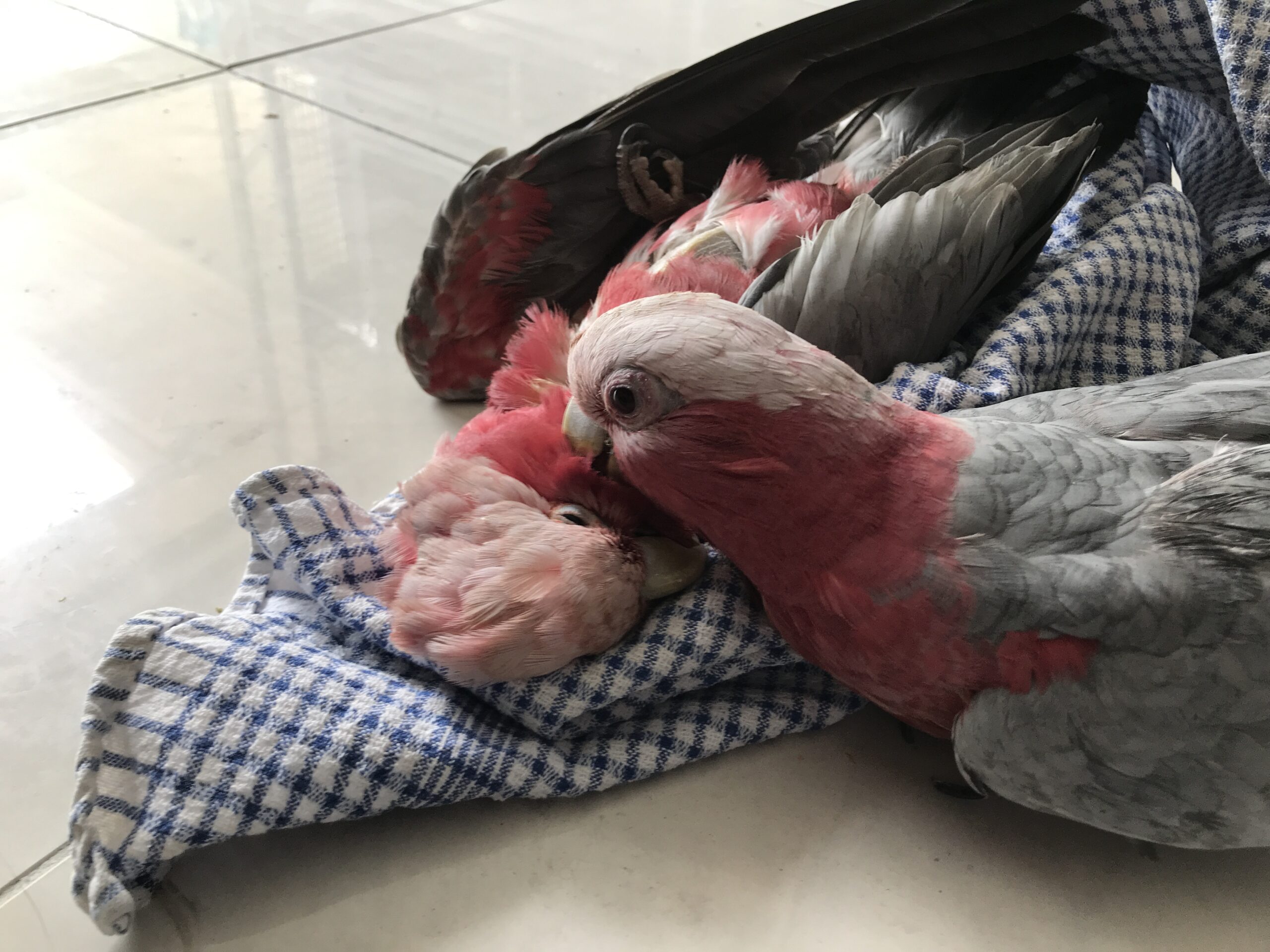
In the days that followed, Cocky Boy refused to eat. He refused to drink. He refused to interact with anyone. He refused his medications (he had a heart condition and chronic arthritis). He'd clamp his beak shut and turn his head away from me. I was having to forcefully crop feed him like a baby to keep him alive. When he wouldn't take his meds, I put them in the crop feed. I was keeping him alive but very clearly against his will. Every night, I'd try to get him to take his meds voluntarily like he'd used to. He and Charlie used to line up and take their medications together but without Charlie, Cocky Boy had no intention of doing it voluntarily alone.
In the end, it wasn't something I had the power to fix. It took another bird to solve this problem for me. Her name was Morgy. Another older galah on medications. I had Morgy my entire adult life. With a heart condition, arthritis, a liver condition and diabetes, she was on a lot of medications. Slightly younger than Cocky Boy she was a lot more agile with beautiful posture. She was also a loner. She rarely interacted with other birds, generally ignoring them and focusing her attention on me. Not this time.
She marched over to Cocky Boy when I was asking him to take his medications. She clonked him over the head with her beak and shoved him out of the way. She turned to me and demanded I give her her medication. Opening her beak voluntarily in the most exaggerated way, as if to demonstrate how to do it. I quickly gave her, her own arthritis medication. Cocky Boy watched. She then stood over him, as I gave him his medications, which he took voluntarily. Well sort-of voluntarily. Somehow Morgy made it very clear she was going to clonk him over the head again if he said no.
From that day on, Cocky Boy started eating again. Every evening, Morgy always supervised his medications and took hers at the same time. The others in my flock seemed to follow Morgy's lead. Cocky Boy didn't have a closely bonded friend any more, but he had many others to keep him busy. He passed away himself 2 years later.
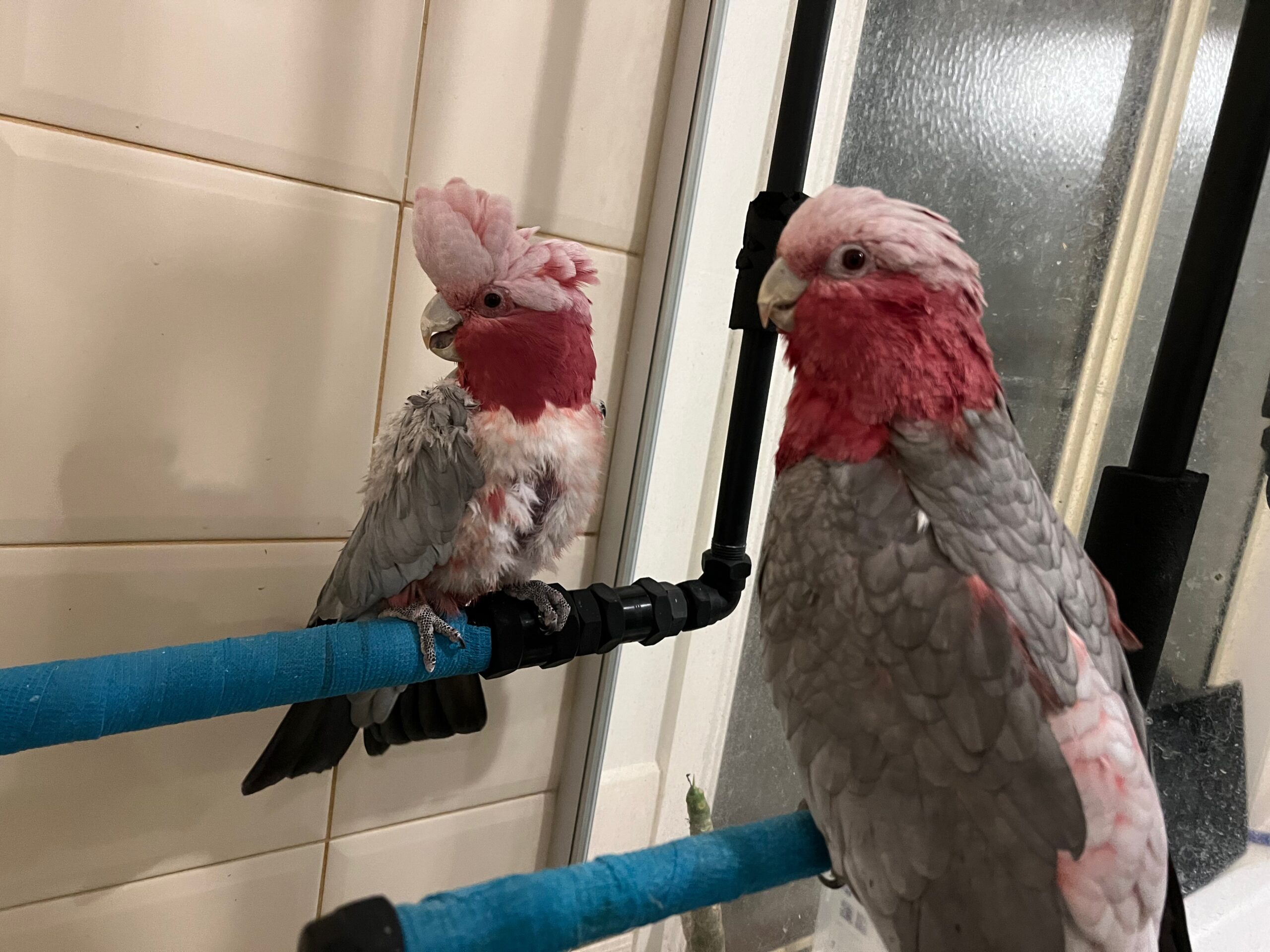
Morgy is actually my most recent loss. At the time of writing, she passed away only a few weeks ago. In the end, it wasn't any of her medical conditions like I had always expected, she developed cancer. Watching her bonded partner say goodbye to her brought back Charlie and Cocky Boy's farewell. At least this time, I knew what to do afterwards.
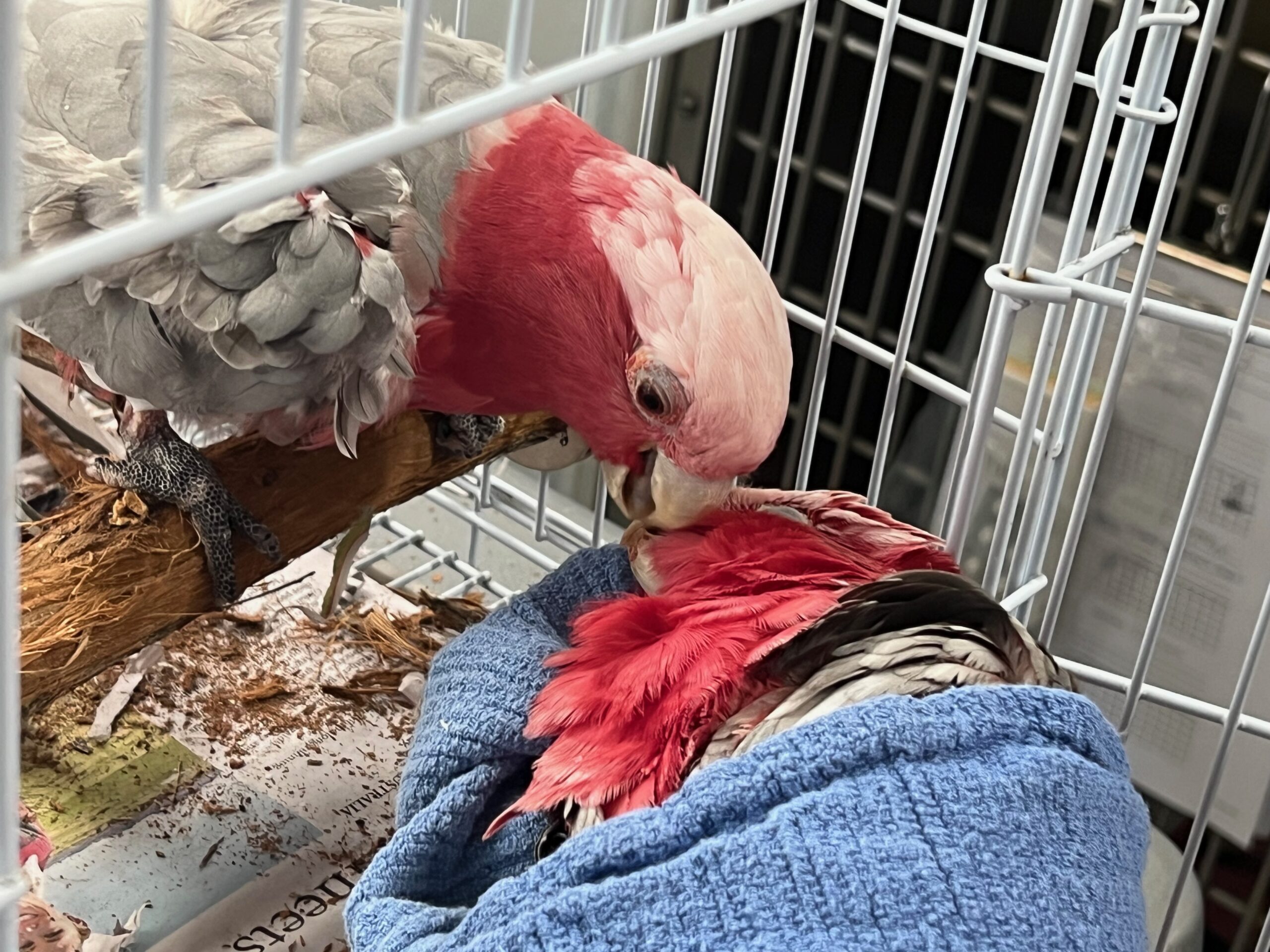
I didn't return George alone to the cage he shared with Morgy. He went in with my other galahs. They surrounded him when he first went in with them and it was like he was telling them what had happened with Morgy. They were making the same sounds I'd heard Cocky Boy make when Charlie passed, a type of clicking sound. Merlin was doing his weird yawn that he did when he lost his partner. They accepted his presence without question and he seems to have coped remarkably well - eating and playing with the rest of my galah flock. (There are now 6 of them - see video below).
Obviously, birds are actually an incredibly large part of my life and I have a particularly large flock. The average person can not replicate what I do at home. Similarly I have a large client base, so a significant pool of stories like the above that I have learned from. I don't expect the average person to go and take on a whole flock of birds if yours passes. What I'm actually saying is that YOU are your bird's flock. Your other family members and animals are also your bird's flock.
You may need to spend more time with your bird if it loses its mate. Find more activities to keep your bird busy. My galahs have spent this week ripping the bark from a number of logs. They've made a huge mess - but they've clearly loved doing it. If you have multiple birds, use their relationships to help them through the grieving process. If need be, get professional help. Watch your bird closely, you may find that you need to do something about a bird that isn't eating until they are ready to eat on their own again.
